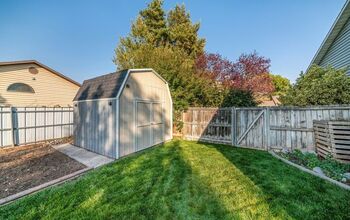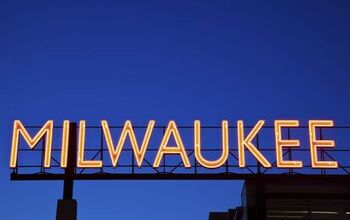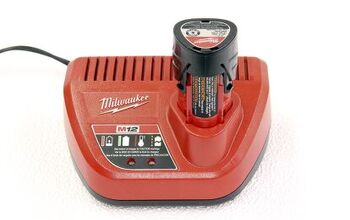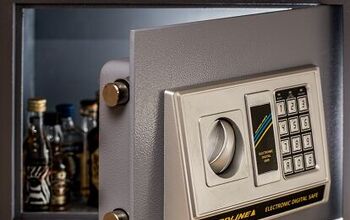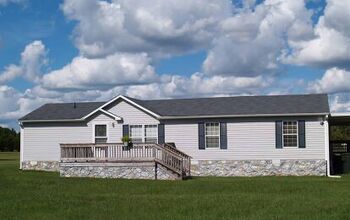Can I Park A Commercial Vehicle In My Driveway? (Find Out Now!)

Running a business can entail a lot of different things. Sometimes it means owning a vehicle that is used to help run the business. That vehicle then becomes one of the single most important tools when it comes to running the business.
But where do you keep that commercial vehicle? If you don’t have a commercial building or lot, what are you supposed to do? When it comes to parking a commercial vehicle in a residential area, it typically is not allowed. Just keep in mind that it can vary depending on your municipality. When in doubt, ask the local city office or even the local law enforcement what the regulations are for parking a commercial vehicle in your driveway (a residential area).
Do You Need a Brick and Stone Floor Contractor?
Get free, zero-commitment quotes from pro contractors near you.

What is a Commercial Vehicle?
Before we can worry about any of the regulations pertaining to commercial vehicles, it helps to know what classifies a vehicle as commercial. For the most part, we tend to equate huge trucks like 18-wheel tractor-trailers as commercial vehicles. But there are more that fall under the classification than that.
Smaller trucks and even some vans can qualify as a commercial motor vehicle. What defines a commercial vehicle is whether or not it has parts that fall under the Federal Motor Carrier Safety Administration (FMCSA) guidelines.
Defining a Commercial Vehicle
So, that provides a little clarity but at the same time doesn’t at all. What parts would qualify a vehicle under the FMCSA guidelines? Well, there are a few instances where even a normal vehicle would qualify as commercial.
For starters, if it is a vehicle that is used to transport passengers or goods with a gross weight rating of 26,001 pounds or more. It also qualifies if there are enough seats to transport eight passengers for monetary purposes or 15 or more passengers for no money. Finally, if it has a large bed or trailer that can transport a large amount of hazardous material, it qualifies as being a commercial vehicle.
It is important to know which vehicles fall under these guidelines. Parking a commercial vehicle in a residential space can result in serious fines. Make sure to check with your local municipality before parking a commercial vehicle in your driveway.
What are the Requirements for Getting a Commercial License?
It might seem like it goes without saying, but you need to have a commercial license to operate a commercial vehicle. These are known as CDLs and are a special class of license that requires tests and training.
Drivers are required to pass a skills (driving) and knowledge (written) test in order to obtain their CDL in some states. Regulations can vary slightly from state to state. There are also certain rules and regulations that come with possessing a commercial driver’s license.
There may be intrastate vs interstate limitations, for starters. CDL drivers are also subjected to a much lower blood alcohol concentration than the average driver. There are also DMV requirements and even potential medical certifications to consider.
So, Can You Park a Commercial Vehicle in Your Driveway?
If you own a physical space for your business, the obvious answer is to store your vehicle somewhere on the property. But not every business owner has a physical property for their business. Many operate individually, more often than not right out of their home.
In most municipalities, a commercial vehicle cannot be parked in a residential space. There are exceptions to the rules and your municipality may allow it altogether. Just make sure that you check with your municipality before you assume that you can just park your vehicle wherever you want to park it.
Why Can’t You Park a Commercial Vehicle in Residential Areas?
The big question becomes “why can’t I park my commercial vehicle in a residential area?” Well, there are more than a few reasons for this. The first and foremost is that residential areas are meant to be living spaces. They are not meant to be used for industrial or commercial purposes.
There is also the issue of neighbor complaints. Most residents do not want commercial vehicles in their neighborhood. With enough complaints, the municipality may decide to ban the parking of commercial vehicles in a residential space altogether if they don’t already.
It is also worth noting that local municipalities are the ones that make their own parking rules. They generally will make them because of potential safety concerns. If a commercial vehicle is blocking a sidewalk or providing limited visibility, it can become problematic.
Take, for example, the city of Los Angeles. Vehicles longer than 22 feet are banned from parking in any residential area. And in Clark County Nevada, commercial vehicles aren’t able to park overnight on residential streets either for visiting or storage purposes. It all depends on the municipality.
Are There Any Exceptions to These Rules?
Again, it depends on the municipality, but there are some exceptions to the rules. There are some exceptions when parking in residential areas. The exception has to do with commercial goods. Commercial vehicles are typically allowed to park in these residential areas if the driver or any of the passengers is loading or unloading goods or providing service.
So, a moving truck would be able to stop and park in a residential neighborhood. A repair or remodeling service would also be able to park their vehicles in the neighborhood. These are all temporary instances of parking, so they become exceptions to the rule.
HOA’s and Commercial Parking
There is also the chance that the neighborhood you live in has homeowners association (HOA) fees. These fees will typically cover certain things that go towards maintaining the value and aesthetic of the neighborhood.
That said, they also have regulatory rights over the streets because they are private. They can enforce parking restrictions that may only be specific to their area. That said, they don’t have authority on public streets, whether they are inside or outside of the borders of the HOA.
Private streets, however, fall under enforcement of the HOA. That can mean banning commercial vehicles or certain kinds of trucks from the street. HOA’s also have the authority to not only fine vehicles but have them towed as well. Check out the parking rules for your HOA before you consider parking a commercial vehicle in your neighborhood.
Do You Need a Brick and Stone Floor Contractor?
Get free, zero-commitment quotes from pro contractors near you.

Final Thoughts
If you own a commercial vehicle but do not have a commercial property in which to park it, complications can arise. It is always preferable if you have some place that you can park your vehicle since most residential areas do not allow it.
You can air on the safe side by checking with your local municipality first. Chances are, though, that you will not be able to park there. Parking in a residential area leaves you open to the risk of potential neighbor complaints and even fines.
Depending on the residential area, you may even be subject to losing your CDL. Given that your business depends on your vehicle, these are risks that are definitely not worth taking. Arm yourself with the proper amount of information and you will be able to keep out of trouble with your commercial vehicle.

Ryan Womeldorf has more than a decade of experience writing. He loves to blog about construction, plumbing, and other home topics. Ryan also loves hockey and a lifelong Buffalo sports fan.
More by Ryan Womeldorf




